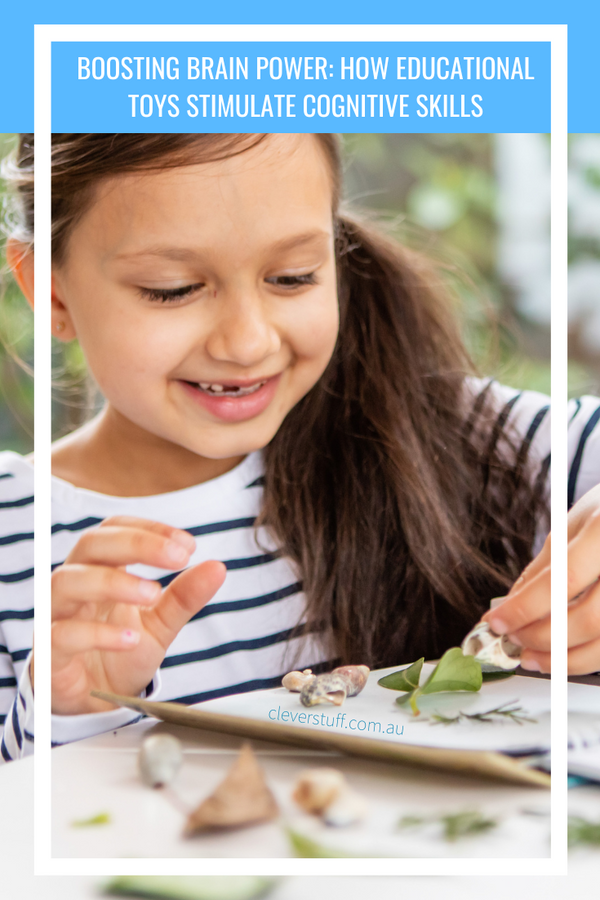How Educational Toys Stimulate Cognitive Skills
Cognitive development plays a crucial role in shaping a child’s ability to think, reason, and problem-solve. Educational toys offer an interactive and engaging way to enhance cognitive skills, empowering children to develop essential thinking abilities. In this blog post, we will explore how educational toys can stimulate cognitive skills and provide valuable insights into the impact of play on brain development. Discover the power of play in boosting brain power and fostering lifelong learning.
-
Problem-Solving Skills: Educational toys challenge children to think critically and problem-solve. Puzzles, brainteasers, and building sets require children to analyze information, make connections, and find solutions. As children engage with these toys, they develop their ability to think logically, break down complex problems into manageable parts, and persevere through challenges. We love wooden toys and have so many here that will help your child develop problem solving skills.
-
Logical Thinking: Educational toys promote logical thinking by introducing concepts such as cause and effect, patterns, and sequencing. Games that involve logical reasoning, such as coding sets or math-based puzzles, enhance a child’s ability to analyze situations, make predictions, and draw logical conclusions. Through play, children learn to apply logical thinking skills to real-life situations.
-
Memory and Recall: Many educational toys require memory and recall skills. Memory games, matching activities, and sequencing toys help children strengthen their working memory and improve their ability to remember and recall information. As children engage in these activities, they exercise their memory muscles and develop strategies for retaining and retrieving information. We have a range of memory and board games available here.

-
Spatial Awareness: Educational toys that involve spatial awareness, such as construction sets or tangram puzzles, enhance a child’s ability to understand and manipulate shapes and objects in space. By engaging with these toys, children develop spatial reasoning skills, visualization abilities, and a better understanding of concepts like symmetry, proportions, and spatial relationships.
-
Attention and Focus: Educational toys that capture a child’s attention and require sustained focus have a positive impact on cognitive skills. Building complex structures, engaging in scientific experiments, or playing strategy-based board games demand concentration and sustained mental effort. Regular engagement with these toys can improve a child’s attention span, concentration, and ability to stay focused on tasks.

-
Creativity and Flexible Thinking: Educational toys that encourage creativity and flexible thinking promote cognitive flexibility, innovation, and problem-solving. Arts and crafts supplies, open-ended building sets, and imaginative play materials allow children to think outside the box, explore alternative solutions, and develop their own ideas. Through creative play, children cultivate their ability to think flexibly and adapt to different situations.
Educational toys are powerful tools for stimulating cognitive skills and fostering brain development. Through play, children can develop problem-solving abilities, logical thinking, memory and recall skills, spatial awareness, attention and focus, as well as creativity and flexible thinking.
By providing a wide range of educational toys that challenge and engage young minds, we can empower children to become confident thinkers and lifelong learners. Let’s harness the power of educational toys to boost brain power and inspire a love for learning in every child.

